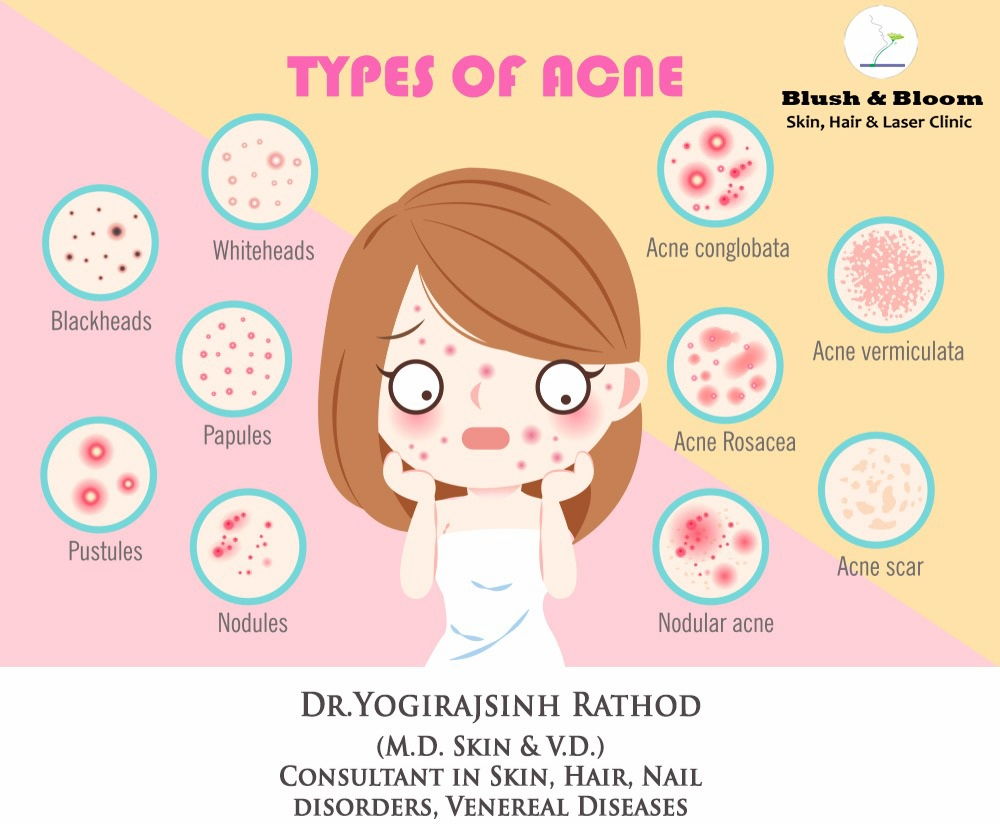
2023-03-16T04:23:58
Acne is a common skin condition that affects millions of people worldwide. It occurs when the hair follicles on your skin become clogged with oil and dead skin cells, leading to the formation of pimples, blackheads, and whiteheads. Acne can be frustrating and can impact your self-esteem, but with the right skincare routine, you can manage and even prevent it. In this blog, we'll discuss some tips for taking care of your skin in acne. Keep your skin clean: It's essential to keep your skin clean to prevent the buildup of oil and dirt that can lead to acne. Wash your face twice a day with a gentle cleanser that's formulated for acne-prone skin. Avoid using harsh soaps or scrubs, as these can irritate your skin and make acne worse. Use non-comedogenic products: Non-comedogenic products are designed not to clog pores, which is crucial for acne-prone skin. Look for products labeled as non-comedogenic, including makeup, moisturizers, and sunscreens. These products won't contribute to the formation of new pimples or aggravate existing ones. Avoid touching your face: Touching your face can transfer bacteria and oil from your hands to your skin, which can worsen acne. Try to avoid touching your face as much as possible, especially if you haven't washed your hands. If you must touch your face, be sure to wash your hands first. Moisturize: Even if you have oily skin, it's important to moisturize regularly to keep your skin hydrated. Look for a lightweight, oil-free moisturizer that's specifically formulated for acne-prone skin. Moisturizing can help prevent your skin from overproducing oil, which can lead to more acne. Don't pick or squeeze pimples: Picking or squeezing pimples can lead to scarring and infection, which can make acne worse. If you have a pimple, leave it alone and let it heal naturally. If you must cover it up, use a non-comedogenic concealer or foundation. Use acne treatment products: There are many over-the-counter acne treatment products available that can help manage acne. Look for products that contain benzoyl peroxide, salicylic acid, or alpha hydroxy acids, which are all effective at treating acne. Be sure to follow the instructions carefully and don't overuse the product, as this can irritate your skin. Protect your skin from the sun: Sun exposure can cause inflammation and worsen acne, so it's important to protect your skin from the sun. Use a broad-spectrum sunscreen with an SPF of at least 30, and wear a hat and protective clothing if you'll be spending time outside. In conclusion, taking care of your skin in acne requires a gentle, consistent skincare routine. Keeping your skin clean, using non-comedogenic products, moisturizing, avoiding touching your face, not picking or squeezing pimples, using acne treatment products, and protecting your skin from the sun are all essential steps in managing acne. With patience and persistence, you can achieve clearer, healthier skin.

